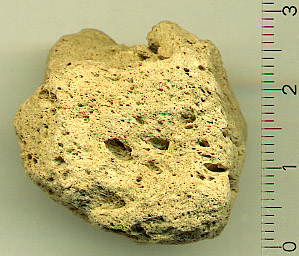She was one of the pilgrims in Chaucer's Canterbury Tales.
Chaucer's introduction of her is clever, subtle, and in every way glorious.
This nun has so many good points, you see: she's demure, nicely-spoken (though her French accent comes from Stratford), sings her prayers in the fashionable nasal style, and has the most beautiful and courtly table manners.
She's so soft-hearted that she weeps over dead mice, and she feeds her pet dogs on roasted meat and fine white bread.
She's a nice-looking woman, too, not under-fed herself, and her large green prayer beads bear a golden brooch ornamented with the legend Amor vincit omnia.
Love conquers all.
Hmmm....
So. What more could you want in a nun, then?
Word To Use Today: eglantine. This word also means the sort of wild rose also called sweetbriar. Eglantine comes from the Old French aiglent, from the Latin acus, needle, from acer, sharp and keen.
The story the Prioress goes on to tell is religious, sweet, and remarkably full of spiky hatred.


















